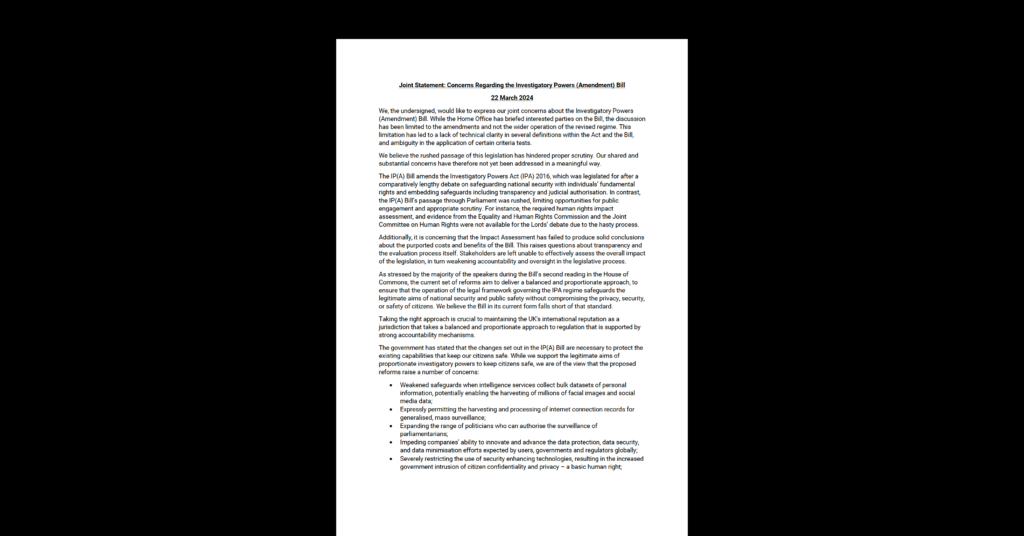EU Tech Policy Brief: July 2017
This is the July issue of CDT’s monthly EU Tech Policy Brief. It highlights some of the most pressing technology and internet policy issues under debate in Europe, the U.S., and internationally, and gives CDT’s perspective on them.
ePrivacy Regulation: Parliament Moves Forward, Member States Ask Fundamental Questions
Discussions on the proposed ePrivacy Regulation are moving forward rapidly in the European Parliament. On 9 June, Parliament’s lead Civil Liberties (LIBE) Committee published MEP Marju Lauristin’s draft Report. Among other things, she proposes narrowing the allowable scope of access to electronic communications data for Member States’ public authorities. Importantly, she suggests a provision obliging communications providers to safeguard confidentiality by including end-to-end encryption and a prohibition on reverse engineering and decryption. These proposals are consistent with our recommendations. At the other side of the spectrum, Axel Voss, the Rapporteur of the Opinion in the Legal Affairs (JURI) Committee, opposes the proposal altogether and proposes a complete rewrite. Meanwhile, Member States are far from being ready to take formal positions, and are seeking clarification on fundamental issues, such as the interaction between the General Data Protection Regulation (GDPR) and the legal basis for processing, consent, and cookies.
Free Speech: Germany Adopts Ill-Advised ‘NetzDG’ Social Media Law
The German Parliament has adopted the law on “Enforcement on Social Networks”, known as “NetzDG”. It is intended to combat illegal hate speech online by fining social media companies up to €50 million for not acting swiftly enough to remove such content. CDT believes the new law is a serious threat to free speech online, particularly because of the lack of transparency, judicial oversight, and access to remedies, as well as the incentive for companies to censor a broad range of speech. “When online content hosts face a risk of litigation over user-generated content, they will respond with overbroad censorship measures that limit individuals’ rights to post and access lawful, constitutionally protected speech”, said CDT’s Free Expression Director, Emma Llansó. There is push for similar action in other EU Member States, including the UK and France, which we will oppose. The UK’s Independent Reviewer of Terrorism rightly dismissed these ideas as counterproductive and damaging to free expression.
Copyright: Concerning New Rapporteur on the DSM Copyright Directive
MEP Axel Voss has replaced Therese Comodini Cachia as Rapporteur on the proposal for the DSM Copyright Directive. We were supportive of many of Ms. Cachia’s efforts, including her efforts to address our concerns on the upload filter provision (Article 13), the press publishers’ right (Article 11), and the text and data mining exception (Article 3). Mr. Voss’s proposed amendments and the recently adopted joint position by his political group (EPP) are unfortunately a sharp turn in the wrong direction for advancing forward-looking copyright reform.
Copyright: Spanish Publishers Begin Paying Themselves for ‘Ancillary Rights’
The case for introducing an ‘ancillary right’ for press publishers is so weak that “it is not even funny to debate it”, concluded a leading academic, Prof. Hugenholtz of the University of Amsterdam. In Spain, such a system has been tried, and has failed. El Pais, one of the largest Spanish newspapers, has rejected the proposal. Nevertheless, the Spanish copyright collection society CEDRO announced in late June that it had finalised its first licensing agreement with the online news aggregator Upday.com and claimed it as proof of the success of the system. However, Upday.com is owned by Axel Springer, the German publishing giant, and the most aggressive advocate for the ancillary copyright for press publishers in Germany (and the EU). It appears that publishers that support the ancillary rights idea are paying themselves in an effort to justify this widely discredited proposal.
Security: CDT Joins Coalition Calling on “Five Eyes” to Respect Encryption
Security and justice officials from Australia, Britain, Canada, New Zealand, and the U.S., also known as the ‘Five Eyes’, met in late June to discuss national security challenges. The discussion focused on the use of encryption applications by terrorists and other criminals. In their view, encryption can weaken public safety by hindering lawful access to communications’ content during investigations into serious crimes. A joint communiqué published by the Five Eyes announced their commitment to “engage with communications and technology companies to explore shared solutions.” In response, CDT joined a global coalition of 83 organisations and individuals in calling on the respective governments to “respect the right to use and develop strong encryption”. The coalition calls for transparency and “meaningful public participation” in any next steps in the dialogue. In Europe this year, ongoing terrorist attacks have also renewed European politicians’ focus on encryption. A task force led by the European Commission’s DG Home is analysing technical and legal aspects of this issue, and intends to bring conclusions and policy options to Ministers during the autumn of 2017.
Surveillance: Meaningful Sect. 702 Reform Would Protect Civil Liberties and Support EU-U.S. Trade and Investment
U.S. Congress is currently debating reform of a surveillance programme under Section 702 of the Foreign Intelligence Surveillance Act (FISA), set to expire on 31 Dec. 2017 unless reauthorized. CDT provided testimony for a recent Senate Judiciary Committee hearing on ‘The FISA Amendments Act: Reauthorizing America’s Vital National Security Authority and Protecting Privacy and Civil Liberties’. Our statement summarises the key elements that would constitute meaningful reforms to 702 to protect privacy and civil liberties. These reforms are necessary to protect privacy rights of both U.S. persons and people in Europe and elsewhere. Also, substantive reform would help bolster the Privacy Shield framework. The agreement is being challenged in court, and without substantive reform of Section 702 there is a considerable likelihood that the CJEU could strike down the Privacy Shield. The Commission is preparing its first annual review of the Privacy Shield that will commence in September 2017. If human rights and privacy concerns are not enough to motivate Congress to take decisive action, perhaps the prospect of disrupting transatlantic commerce and investment may be.

